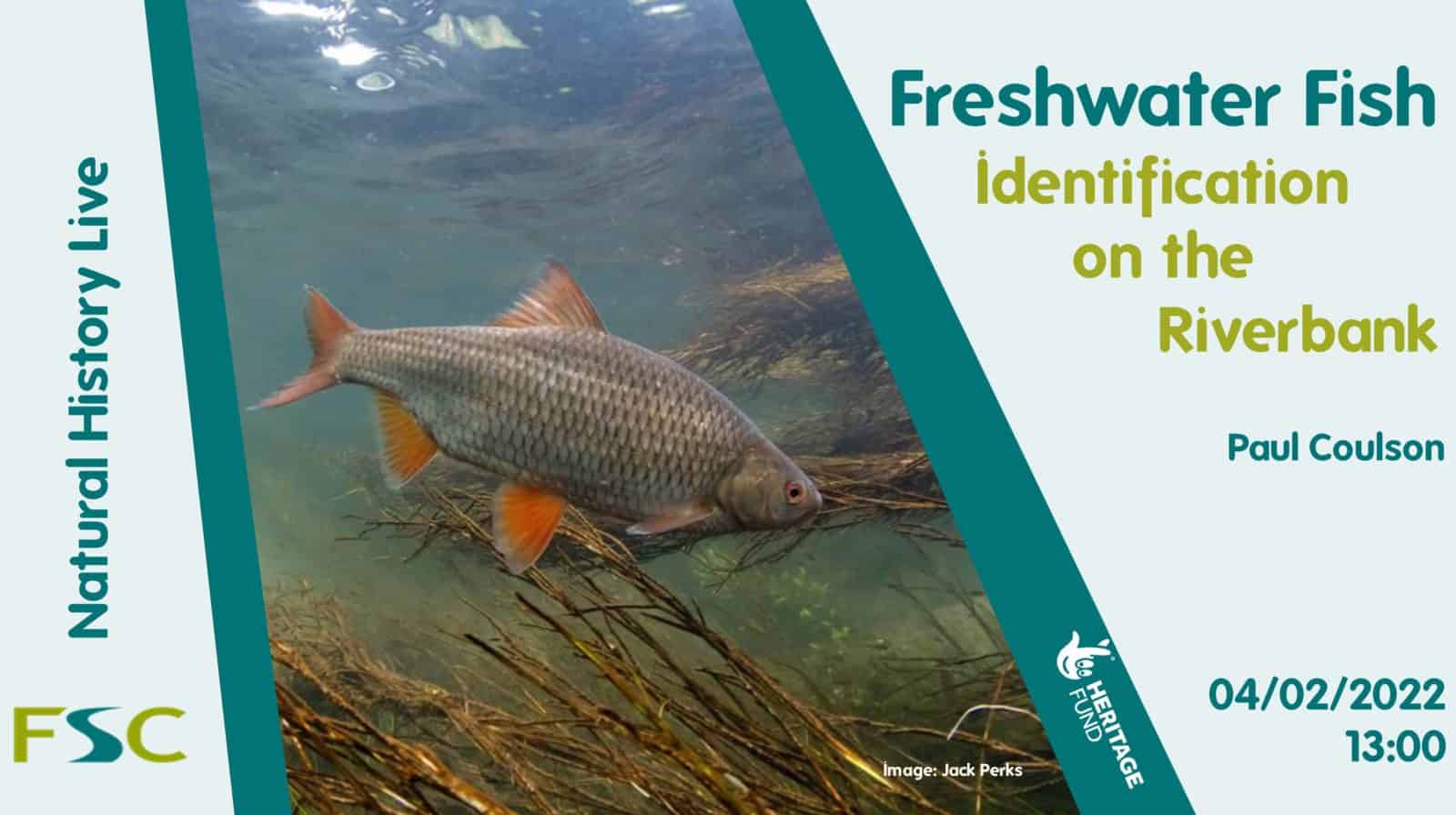There are roughly 50 fish that spend some of their lives living in freshwater in the British Isles, of these 41 are classed as native. A lot of them look very similar and you need to be able to look for the sometimes subtle differences to tell them apart. They also have an annoying habit of hybridising.
This talk will identify some of the main species and give a few hints and tips on what to look for when faced with a slippery specimen.
FSC Natural History Live webinars are free online learning experiences for adults, comprising of a 30-40 minute talk from a guest speaker, followed by a question and answer session. We host them on Zoom and we will send out joining instructions on the day of the event. Sign up for the FSC Biodiversity newsletter to find out about our other online learning opportunities and receive exclusive discounts.
This event can be booked through the Natural History Live webinars Evenbrite page.
Tutor: Paul Coulson
Paul is the Director of Operations at the Institute of Fisheries Management. He has worked with fish and fisheries all of his career and is also an avid angler, sometimes he even catches one or two.
Cost
These Natural History Live webinars are made available to all at no cost. If you would like to contribute to the Natural History Live webinar programme you can do so by selecting the option to attend at a cost of £5. All donated fees contribute financially towards supporting adult learning opportunities for a range of audiences with the FSC. This event can be booked through the Natural History Live webinars Evenbrite page.
Example Timetable
The usual format of Natural History Live virtual events is:
- 5 minute intro by the FSC Biodiversity project team
- 30-40 minute talk presented by guest speaker
- 15-25 minute speaker Q&A session hosted by a FSC staff member
What's Included
Bursaries and Subsidies
FSC BioLinks
FSC BioLinks is an exciting project for FSC in the South East and West Midlands, bringing together existing volunteers with skills in biological recording and identification, and new volunteers.
This project provides subsidised training courses, learning opportunities and digital tools focussed on invertebrate identification for anyone involved or interested in biological recording, to build and strengthen the community.
Invertebrates provide us with many useful ecosystem services, like pollination and decomposition, which we cannot survive without but their numbers are declining. Few people know how to identify or record invertebrates meaning there is a lack of data
We are delighted to have been awarded a grant of £1.23 million from the National Lottery Heritage Fund for this project.
Before You Attend
Please note that after booking on to the event:
- You will need to download the Zoom software before we start. This is free and you can do so here: https://zoom.us/
- You can sign into the Zoom test meeting any time before to test if everything is working for you here: https://zoom.us/test
Sorry this course has ended

